Poisoned, not Penitent: Russian Activist Urges U.S. to Stand Up to Putin
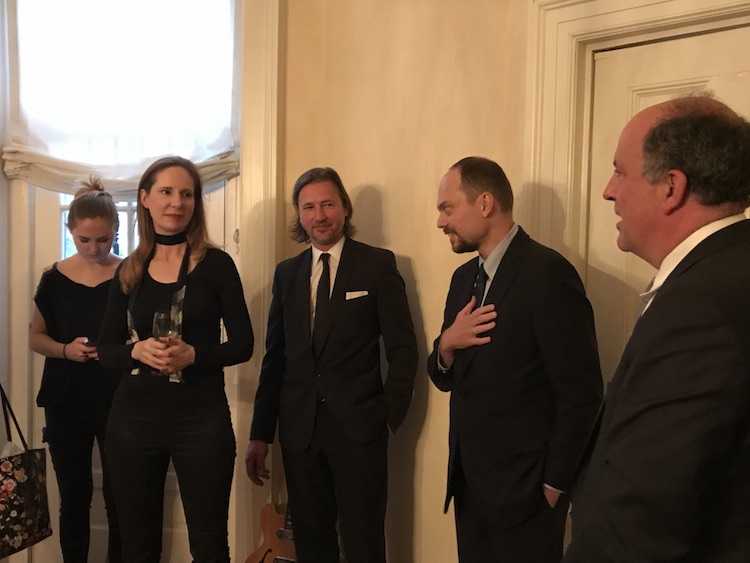
Two years ago, Vladimir Kara-Murza, a boyish former journalist and political activist in Russia, was mysteriously poisoned and fell into a coma. Three months earlier, his friend and ally, activist Boris Nemtsov, was murdered blocks from the Kremlin. Then Kara-Murza, who produced a documentary about Nemstov, was poisoned again. He survived. But as his young children scampered around his feet recently at a supper in his honor hosted by Juleanna Glover and Freedom House, the soft-spoken, Cambridge-educated Kara-Murza pulled back the curtain on the country that stands accused of interfering with U.S. elections – and the man at its helm, Vladimir Putin. Freedom House’s new President Michael Abramowitz, a former Washington Post journalist himself, conducted this interview:
ABRAMOWITZ: We’re thrilled that Vladimir Kara-Murza is here. Vladimir is the Vice Chairman of Open Russia, which is a group that we at Freedom House have been working very closely with over the last couple of years. They are fighting to restore democracy to Russia. He’s a person after my own heart, a former journalist, a fine journalist, and he made a terrific movie which I hope you will get a chance to see about his friend and ally Boris Nemtsov, who was assassinated in Moscow in 2015, just blocks from the Kremlin. He’s also been working very courageously, going back to Russia on a number of occasions – he has been involved in street protests against the Putin regime, and we’re grateful that he is actually physically with us. I want to give you a chance to say a few words.
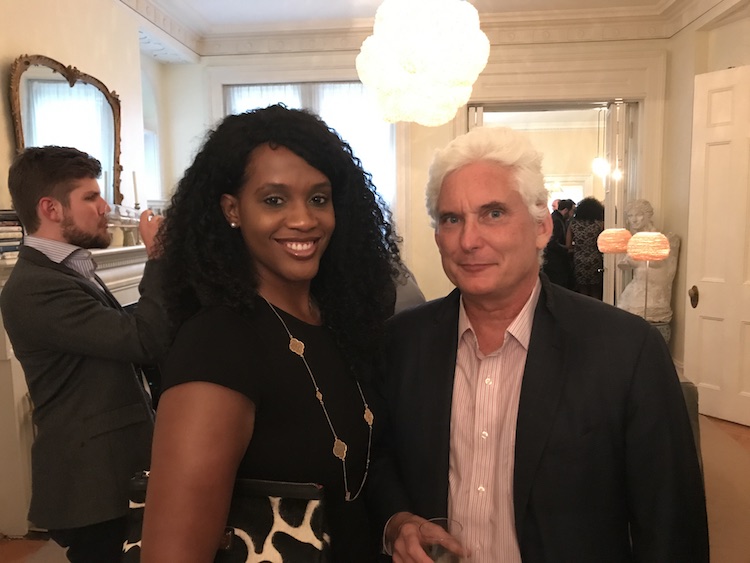
KARA-MURZA: Thank you, Juleanna and Christopher, and thank you Michael and Freedom House. When I saw the invitation to this dinner, I didn’t have the chance to protest that it was in my honor, but I’m going to go ahead and protest it now, because first of all it’s embarrassing, but also…this really is about Russia – not the Russia we all hear about in the media, the Russia of Vladimir Putin – the Russia that imprisons and murders people for their political beliefs, that falsifies elections and silences the media, that annexes and invades territories of other countries. But a different Russia – the Russia of those people, who have the strength and the courage and the conviction to stand up for what they believe in and do the right thing. The Russia of those tens of thousands of people – mostly young people – who marched out into the streets just a few weeks ago, despite the arrests, despite the intimidation, despite the pressure – to say no to Mr. Putin and his corruption and his autocracy.
That first official Russia too often overshadows the second one. And that of course is precisely Mr. Putin’s intention. He wants the whole world to think that Russia is only about him and his regime. In fact, they say it often. One of his aides was quoted a couple of years ago saying, “There is no Russia without Putin.” That is an insult to my country. It’s also a lie. Russia is so much more diverse, so much bigger, and frankly so much better than Vladimir Putin and his regime.
ABRAMOWITZ: He’s entrenched in power, he’s been there for 17 years or so. Is there a future for democracy in Russia?
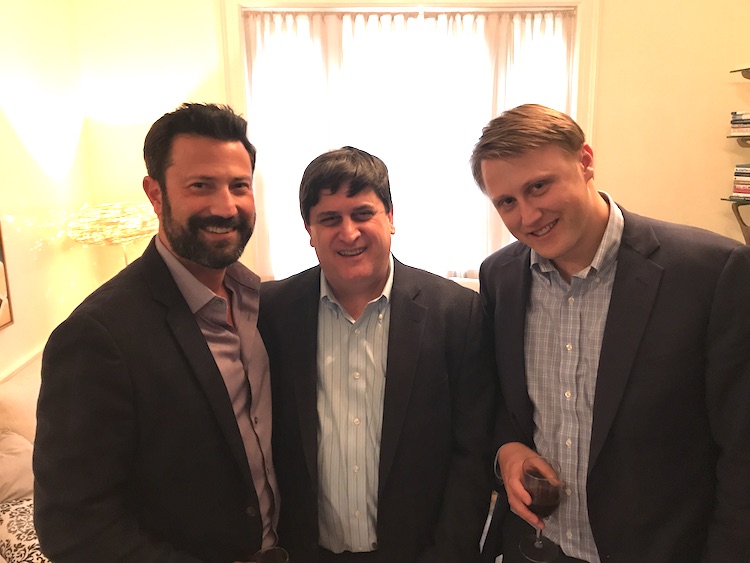
KARA-MURZA: The answer is of course, “Yes.” And the regime knows it and that’s why they’re behaving the way they are. You know, we often hear how popular he is. That he has 86 or 90 or whatever percent popularity in opinion polls. And he’s so strong that he has no opponent. But I always like to judge this government by the way it behaves, not by phony opinion poll numbers. A government that really does have 86 percent, and that really is popular, wouldn’t need to falsify elections, would it? You wouldn’t need to silence any dissenting voices or beat up peaceful protesters on the streets of Russia for years now. That’s the behavior of a government that’s very insecure, and that knows that it’s only there in the first place because it silences all of its critics. Because there have been no free and fair elections in our country for the 17 years now that you mention. Almost a generation.
There’s this other big stereotype – and I get really angry about it – that Russians somehow love the “strong hand” or “the whip” or whatever phrase is used. It’s simply not true. Every time there was anything resembling a free and fair election in Russian history, which admittedly was not, unfortunately, that often, anytime there was a choice between an autocratic option and a democratic option, the Russian people chose the democratic option every single time.
ABRAMOWITZ: We at Freedom House have done a lot of work on what are the tactics of authoritarians, an Erdogan in Turkey for example – have copied the techniques of Putin. What’s the key to how he’s been able to hold onto power for so long?
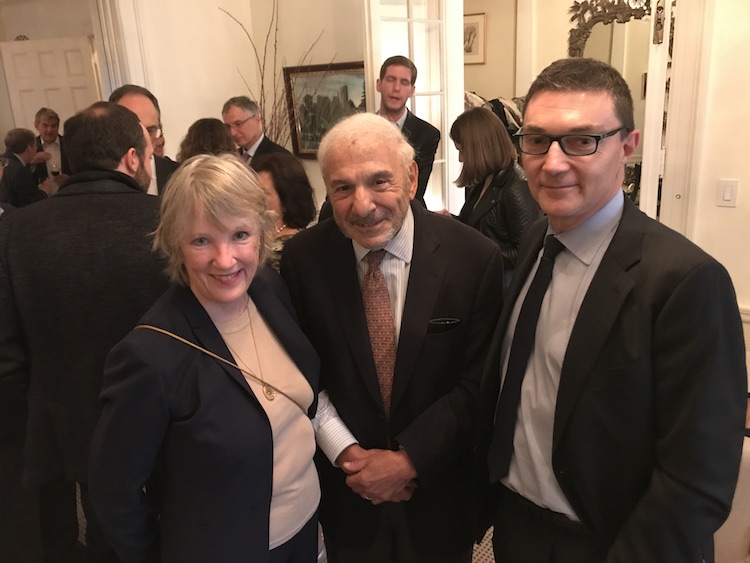
KARA-MURZA: I’ve experienced it. He’s been really clever as an autocrat, there’s no question about it. The way he originally consolidated his power was the way that Mussolini devised it. Mussolini said, “Pluck the chicken feather by feather to lessen the squawking – don’t try to do it all at once.”
He began with the independent media. One by one he shut down independent television networks. Cleverly – because he would not have been able to do any of the other stuff if there was honest reporting about it. Then he went after the opposition, which was routed out of parliament in 2003, then began rigging elections, then he put [oil tycoon Mikhail] Khodorkovsky into jail, which was clear signal to anyone who dared to behave independently from the regime that that’s what awaits you if you do that. So he’s been doing it carefully. You know, there’s this analogy – sucking the air out of a room very slowly – he did it carefully. Now, there are no significant national independent media voices. We don’t have a single opposition member in our current parliament.
ABRAMOWITZ: There’s been a lot of discussion about Russia in the news. Tell us in your opinion, why did Putin try this brazen effort to interfere with our elections? The intelligence agencies have unanimously concluded that there was this kind of effort. What was in his mind, why did he want to do this?
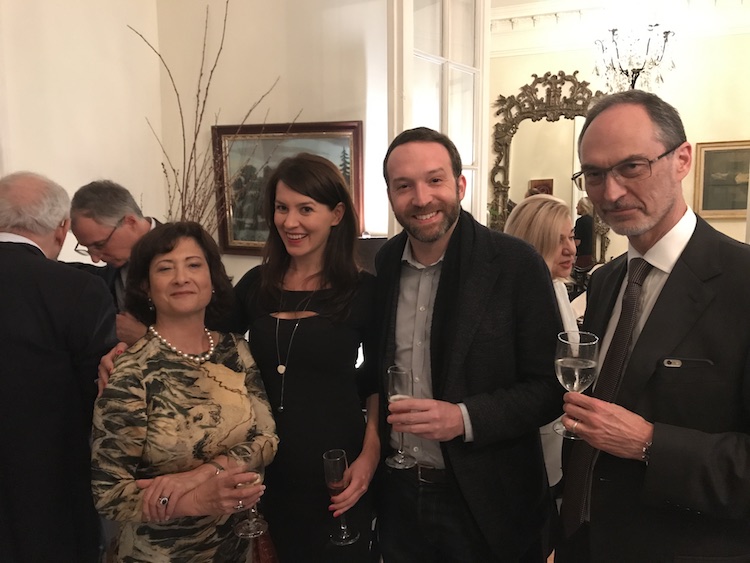
KARA-MURZA: He’s tried to do this for a long time. Not necessarily here but in many other countries. So of course the first elections Putin began interfering with were Russian elections. We haven’t had a single free and fair election in Russia since 2000. That’s not me saying it, that’s the OECD saying it. Then he decided to go into countries like Ukraine and Georgia and Moldova and he tried to interfere in elections there. And then you know why not go for the gold? Why not try to do this in the most powerful democracy. Everything he’s been doing, both domestically and internationally he was at first very careful, looking for reaction. He was seeing what he could get away with. And he saw he could get away with anything. Both previous U.S. administrations tried to be friendly with him. George W. Bush looked into his eyes and saw something in there. (Laughter) Barack Obama declared a “reset” with Russia, so Putin got the message that it was okay. And it’s not just the U.S. It’s most western democracies.

I remember three days after Putin pulled the plug on the last independent nationwide independent television network in Russia, he was given a royal reception, literally a royal reception, at Guildhall in London, with all the British government present. I was there because I was a journalist at the time. So I saw it.
So we can’t really blame him for getting the message that it’s okay, you can do whatever you want. First he got that message when he was doing things inside Russia, then inevitably he went outside Russia’s borders. That’s the way things usually are, because domestic repression is inevitably followed by external aggression. Because why should a government that disrespects its own citizens and violates its own laws.
Why should it be expected to respect other countries and not to interfere in other countries? So he’s been doing it for years and years and years. After Ukraine and Crimea, there’s finally been a change in the attitudes of Western governments. I guess it’s better late than never. But even now we’re hearing voices both here and in Western capitals saying “Let’s go back to business as usual. Let’s be friendly with Putin.”
The only two things we ever ask from Western leaders is first to be honest and not pretend that Mr. Putin is a desired partner. And secondly, we ask Western leaders to stay faithful to the principals that form the basis of your own systems. For example, by not enabling the export of the corruption of the Putin regime to Western countries and to Western banking systems. By not giving a welcome to those people who abuse the rights Russian citizens and steal the money of the Russian taxpayers, but then find safe havens in Western countries – by buying luxury real estate in Western countries, and send their families over there, and go shopping and take vacations there.
And that’s why Boris Nemtsov called The Magnitsky Act the most pro-Russian (people's) law ever passed by a foreign legislature. I was very proud to work with Juleanna on that law.
(The law imposes sanctions on Russian officials who abuse human rights. It’s named for Sergei Magnitsky, the whistleblowing lawyer who was tortured to death in 2009. It passed the House on November 16, 2012, the third anniversary of Magnitsky’s death.)
That’s all we ask.
ABRAMOWITZ: Thank you for being here, Vlad.
Read more about Freedom House here, and and Open Russia here.
